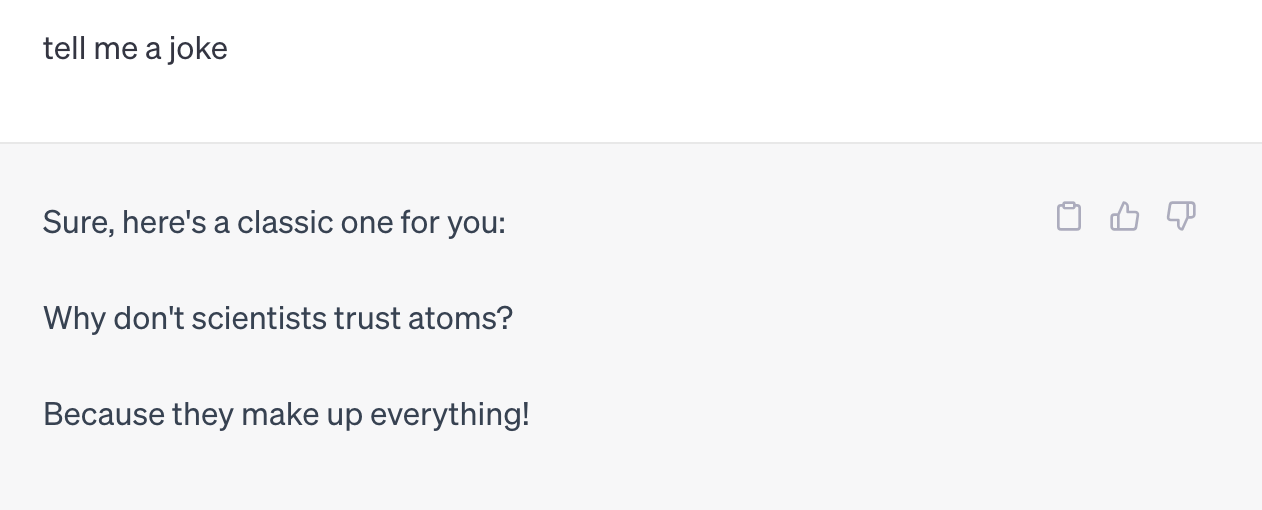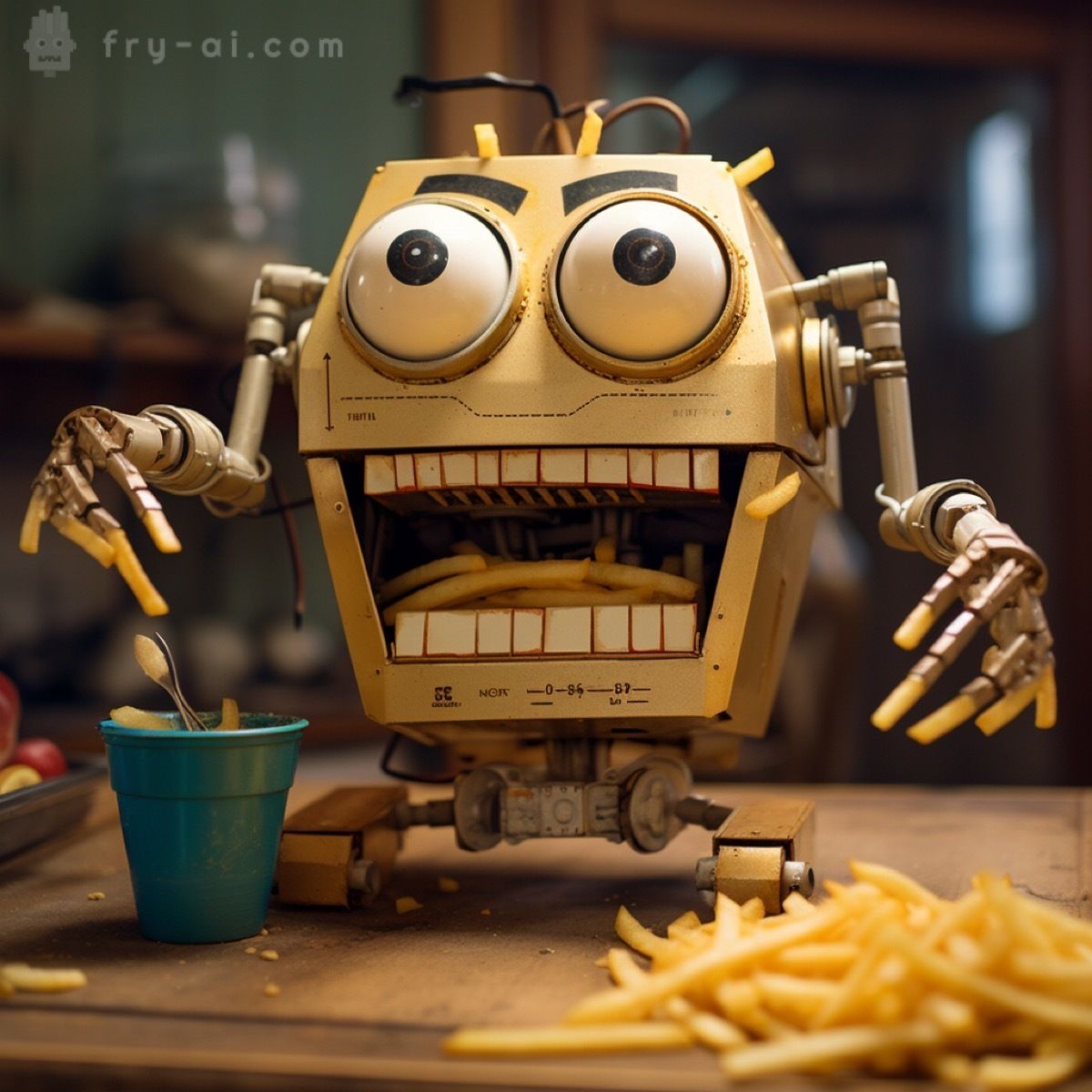
Yesterday was National French Fry Day, and today is FRY-day—that means even more fresh and crispy AI news! 🍟
Today’s Menu
Appetizer: AI’s comedic lawsuit 🤣
Entrée: Google gives Canada the cold shoulder 🥶
Dessert: How AI is helping to reduce food waste 🌮
🔨 AI TOOLS OF THE DAY
🖍 Color Anything: Utilize AI to create personalized coloring pages. → check it out
👔 Wardrobe AI: An AI-powered tool that utilizes user-uploaded images to provide personalized wardrobe recommendations. → check it out
⌨️ Codiga: A powerful AI-powered static code analysis tool designed to enhance code quality and improve developer productivity. → check it out
AI’S COMEDIC LAWSUIT 🤣

Oof … ChatGPT’s jokes are even cornier than Fry Guy’s! 😬
What happened? A group of comedians, including Sarah Silverman, Christopher Golden, and Richard Kadrey have opened a lawsuit against OpenAI and Meta, alleging that these companies used their comedic material to train language models without authorized consent or compensation.
What’s the underlying issue? There seems to be a growing concern about copyright infringements by AI models, who pull data from a vast database without any credit or compensation given to the source. These concerns are rising in a variety of fields, and although companies like Meta and OpenAI claim that they are aware of the problem and are working to fix it, little has actually been done.
Will AI replace comedians? Comedy, at its core, is a matter of shared human experience. It would be difficult for AI to replace this. As comedian Jimmy Failla remarked, “No one's going to show up to a comedy club and buy a two-drink minimum to stare at a laptop, typing out words, or even saying those words through some Bluetooth audio, so I don't necessarily feel threatened by it.”
GOOGLE GIVES CANADA THE COLD SHOULDER 🥶

Canada is known as a land with some of the snowiest winters, so they are familiar with the cold shoulder. ❄️
What’s going on? Google’s Bard chatbot is being expanded to 230 countries and territories, including in Europe and Brazil. Notably excluded from this initial rollout, however, is America’s neighbor to the north: Canada. This decision has left many Canadians puzzled and disappointed.
Why omit Canada? Speculations about the reasons behind this omission are abundant, but it is widely suggested that it is due to regulatory roadblocks, including privacy and data regulations. These tech companies are in a tizzy with the Canadian government over the Online News Act, which would force Google and Meta to share revenues with Canadian news publishers whose content they use. The companies have said this process is unworkable and that they will instead block news from their platforms in Canada, a move that would exempt them from the legislation. This seems to be an underlying reason for the omission, until agreements can be made.
What does this really mean? This means Google’s Bard will become more widely available, but it will just take a little longer for Canada to gain access. As a Google spokesperson said, “We’re committed to being good partners as we work through regulatory uncertainty in Canada, and we’re enthusiastic about bringing Bard’s generative AI potential to Canadians soon.” 🇨🇦
HOW AI IS HELPING TO REDUCE FOOD WASTE 🌮

The best fries are the ones dug deep in the bottom of the bag —> don’t let those go to waste! 🍟
What’s new? Food waste is a significant global problem, and the foodservice industry plays a considerable role in contributing to this issue. However, advancements in AI and machine learning are offering innovative solutions to tackle this challenge through real-time analysis.
How does this work? By analyzing data from sales records, inventory levels, and customer preferences, these AI systems can predict demand patterns, identify potential areas of waste, and recommend adjustments to chefs and managers. This data enables foodservice establishments to make more informed decisions about purchasing, production, and menu planning to optimize operations and minimize unnecessary food disposal. Additionally, real-time monitoring allows chefs and staff to better understand their kitchen practices and make necessary adjustments to reduce waste. They can quickly identify overproduction, spoilage, or inefficient processes, leading to more sustainable and cost-effective operations. Furthermore, the implementation of AI and machine learning in commercial kitchens promotes a culture of awareness and accountability around food waste. By visually displaying real-time data on waste levels, staff members become more motivated to actively participate in waste reduction efforts.
FRY-AI FANATIC OF THE WEEK 🍟

Congrats to our subscriber, fvoehl! 🎉
Fvoehl gave us a fresh and crispy and commented, “This newsletter is like the ideal French-fry: Fluffy on the inside, crispy on the outside - and stays crispy well beyond the time it takes to eat the fries and, say, a big juicy Cheeseburger. The ideal french-fry!”
(Leave a comment for us in any newsletter and you could be featured next week!)
HAS AI TAKEN OVER THE WORLD? CHECK OUT THE FRY METER BELOW

The Fry Meter jumps a full 2%, in the largest daily increase on record. Reasons : Elon Musk announces new AI company and regulators continue hollow lip service.